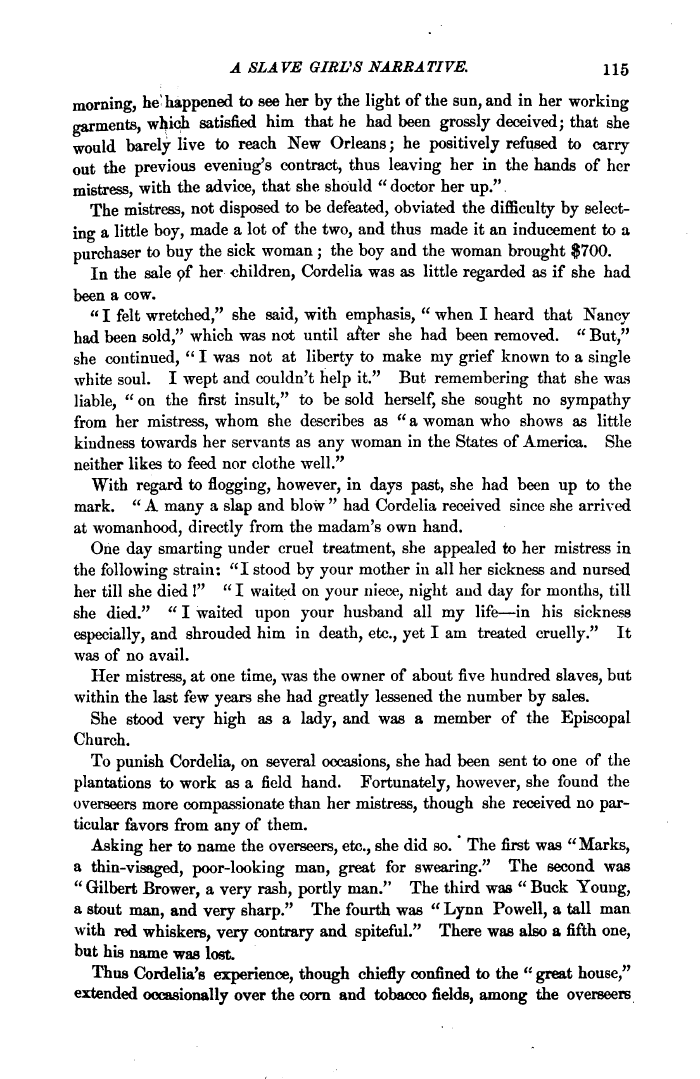 |
||||
 |
||||
| a SLA VE GIRUS NARRA tire. 115 morning, he'happened to see her by the light of the sun, and in her working garments, wl|ich satisfied him that he had been grossly deceived; that she would barely live to reach New Orleans; he positively refused to carry out the previous evening's contract, thus leaving her in the hands of her mistress, with the advice, that she should " doctor her up/'. The mistress, not disposed to be defeated, obviated the difficulty by selecting a little boy, made a lot of the two, and thus made it an inducement to a purchaser to buy the sick woman ; the boy and the woman brought $700. In the sale 9f her -children, Cordelia was as little regarded as if she had been a cow. " I felt wretched," she said, with emphasis, " when I heard that Nancy had been sold," which was not until after she had been removed. " But," she continued, " I was not at liberty to make my grief known to a single white soul. I wept and couldn't help it." But remembering that she was liable, " on the first insult," to be sold herself, she sought no sympathy from her mistress, whom she describes as " a woman who shows as little kindness towards her servants as any woman in the States of America. She neither likes to feed nor clothe well." With regard to flogging, however, in days past, she had been up to the mark. " A many a slap and blow " had Cordelia received since she arrived at womanhood, directly from the madam's own hand. One day smarting under cruel treatment, she appealed to her mistress in the following strain: "I stood by your mother in all her sickness and nursed her till she died I" " I waited on your niece, night and day for months, till she died." " I waited upon your husband all my life—in his sickness especially, and shrouded him in death, etc., yet I am treated cruelly." It was of no avail. Her mistress, at one time, was the owner of about five hundred slaves, but within the last few years she had greatly lessened the number by sales. She stood very high as a lady, and was a member of the Episcopal Church. To punish Cordelia, on several occasions, she had been sent to one of the plantations to work as a field hand. Fortunately, however, she found the overseers more compassionate than her mistress, though she received no particular favors from any of them. Asking her to name the overseers, etc., she did so. The first was "Marks, a thin-visaged, poor-looking man, great for swearing." The second was " Gilbert Brower, a very rash, portly man/' The third was " Buck Young, a stout man, and very sharp." The fourth was " Lynn Powell, a tall man with red whiskers, very contrary and spiteful." There was also a fifth one, but his name was lost. Thus Cordelia's experience, though chiefly confined to the " great house," extended occasionally over the corn and tobacco fields, among the overseers |